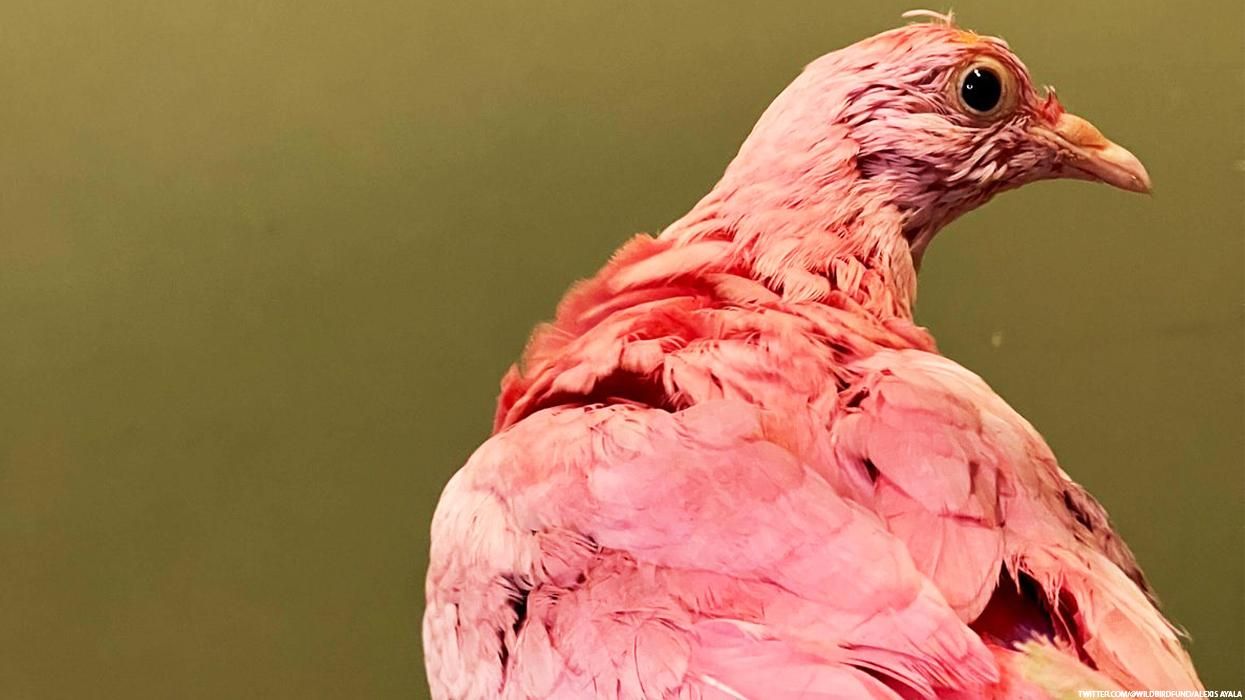A pink pigeon captured hearts after he was found wandering in New York City. Named Flamingo upon his rescue, people hoped that the bird would survive the chemicals from the pink dye.
Sadly, the Wild Bird Fund announced Tuesday that Flamingo died, roughly a week after being taken in.
“We are deeply sad to report that Flamingo, our sweet pink pigeon, has passed away," the organization wrote on Twitter. “Despite our best efforts to reduce the fumes coming off the dye, while keeping him calm and stable, he died in the night. We believe his death was caused by inhaling the toxins.”
\u201cWe are deeply sad to report that Flamingo, our sweet pink pigeon, has passed away. Despite our best efforts to reduce the fumes coming off the dye, while keeping him calm and stable, he died in the night. We believe his death was caused by inhaling the toxins.\n\n\ud83d\udcf7: Alexis Ayala\u201d— Wild Bird Fund (@Wild Bird Fund) 1675777138
While is is still unknown why the bird was dyed and released into the wild, social media director of the Wild Bird Fund Catherine Quayle told NPR that "many of our followers have speculated that it was for a gender reveal party."
"King pigeons are naturally all-white, although we occasionally receive one with a small amount of dye or paint," she said. "This situation was a first."
Flamingo was reportedly under a year old and "couldn't even fly yet." The Wild Bird Fund previously said that they tried to remove the dye, but were unable to wash it out. While the dye was the primary cause of death, the WBF added that he should have never been released into the wild.
"This king pigeon, a domestic bird likely raised for food, was malnourished, barely older than a baby and had no survival skills," the statement continued. "Even without the added complication of the toxic dye, he would not have survived in a city park as a white, helpless bird. Domestic birds — birds raised in captivity — should never be released to the wild. They will die of starvation or predation."
The organization noted that the practice of dove releases for wedding and other special events is dangerous and needlessly cruel to the animal.
"Take away the decorations and Instagram photos, and they are the equivalent of dumping your helpless pets on the side of the road," they wrote. "This is no way to celebrate anything."
While it is illegal to release domestic animals in New York City parks, the WBF noted "it is a hard law to enforce or prosecute."
Quayle added that they have since been "overwhelmed by messages of concern and goodwill for this poor bird," and that she hopes Flamingo's story prevents similar actions.
"As sad as we are that Flamingo did not get the chance to live a full life in a sanctuary or home, we're heartened that his story has reached so many around the world," she said. "We hope fewer birds will suffer from careless cruelty as a result."
- Extreme Heat Could Endanger 40 Percent of Land Animals ›
- Kangaroo Leather Ban Considered by Oregon Legislature ›
- 10 States Have Banned the Sale of Cosmetics Tested on Animals ›



















































